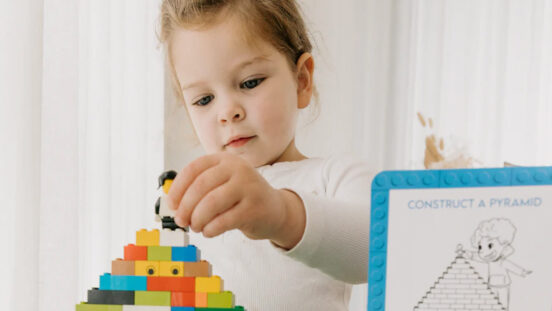Is my child gifted? A parent’s guide to identifying the characteristics of a gifted child
If you have an intensely curious, sensitive, empathetic child who wants to learn everything about the world, there is a strong chance that they are gifted.
By Brooke Lumsden
Giftedness is one of the most commonly misunderstood concepts I have come across in my time as a parent and a teacher. The truth is, when we have babies and young children, we’re so busy in our own little bubble with them that we often don’t realise what is out of the ordinary for their age group.
Perhaps your baby made eye contact earlier than you expected, but you didn’t realise how extraordinary it really was. It was for this reason I began guiding parents through the overwhelming maze of giftedness.
When I talk to parents about this topic, I find there is a belief that we identify gifted children based on academic achievement and school outcomes, but this is not the case at all.
Identification can easily start at a much younger age, and the signs are even there in babies.

Brooke Lumsden, Gifted Education Teacher & Parenting Specialist, says that if you have an intensely curious, sensitive, empathetic child who wants to learn everything about the world, there is a strong chance that they are gifted.
As a teacher, I’ve often found my most intelligent students to be the ones who arrive in my classroom already disengaged from school, totally underachieving, bored and frustrated.
This is a result of their needs not being met at school, and sometimes beyond that.
This disconnect can lead to social and emotional issues, low self-esteem and more serious concerns as they grow. This is why early identification is so important, as is parents understanding giftedness in order to meet their child’s needs and advocate for them.

There are a number of signs in young children that they may be gifted, and they’re probably not what you’d expect!
Signs your child may be gifted
There are a number of signs in young children that they may be gifted. Three of the most common signs are:
Their fierce independence
These children want to get on with things themselves. They may be absent-minded and need your help to find their shoes every day, but once they’re set to go, they want to do everything on their own until they master it.
It will be a battle to hold their hand when crossing the road, or helping them get their seatbelt on (even when they’re still in a baby seat!), or they will want to pour their own milk and butter their toast.
Of course, we want to encourage independence, but when they don’t yet possess the motor skills they are so desperately trying to use, it can become incredibly frustrating for them – and us as a result!
Their intense emotions
These kids feel everything deep in their soul, whether they verbalise it or not. Their emotions are often influenced by their sensitivity, their self-criticism, and their compassion for others. Sometimes this can lead to very vocal meltdowns, and sometimes it may be total withdrawal.
Giftedness can also co-exist with any disability or disorder (other than an intellectual disability), which can impact the way they express their emotions.
The way they play
The understanding of cause and effect early can dictate the way gifted children play. They will quickly work out how toys with buttons and sounds work, how to piece blocks together and how to do puzzles early.
They also have a rich imagination and love indulging in the world of make-believe as they grow.
WATCH: How To Build A Play Tent. Continues after video …
It’s important to nurture these traits to encourage and support your child’s development. You can provide enriching experiences for them through simple strategies:
- Join a library to provide a wide selection of books that will continue to engage them.
- Allow them to safely explore their environment and discover new things as often as possible.
- Be guided by their interests. Take them to museums, parks, and exhibitions that will intrigue them.
- Find toys and games that will pique their curiosity and allow them to learn.
- Most importantly, allow them to feel their feelings. Have age appropriate discussions about emotions and support them through the tough ones.
Brooke Lumsden is the author of ‘The Busy Parents’ Guide to Raising Gifted Kids’. To learn more about your gifted child and how to support their wellbeing, including the secrets to school advocacy, check out Brooke’s course, Raising a Gifted Child, on Udemy




